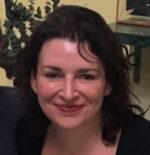Clarissa has practiced therapy for many years and works with people from diverse backgrounds, who are hoping to find support for a range of issues, from immediate concerns such as sleep difficulty, to relationship or career problems, to exploring more abstract and existential questions.
Dr. Slesar believes that all emotional and behavioral “dysfunction” is an attempt, at its core, to protect oneself from repeated psychological injury or trauma. Understanding how our self-sabotaging or self-destructive tendencies, symptoms of anxiety, depression, “unhealthy” relationship patterns, etc., are, on a less conscious level, strategies to cope with and to prevent pain and suffering, is a crucial step towards feeling better and doing better. Creating meaningful connection between the way we feel, and the conditions and experiences that have contributed to our emotional states, good or bad, and our behaviors, good or bad, is an important piece of the work that we do. Once we are able to identify and understand how mechanisms which were at one point necessary solutions to problems of pain and conflict, are now not only unnecessary, but now get in the way of our own success, we can begin to develop new, positive ways of relating to and taking care of ourselves.
In the words of Joseph Addison, “Three grand essentials to happiness in this life are something to do, something to love, and something to hope for.” Grounded in a decade and a half of advanced education, training and research, it is Dr. Slesar’s aim to act as a compassionate and empathic partner in clients’ effort to achieve success in and balance between these grand essentials: having something to do – meaningful work that engages us in positive and stimulating ways; adequate and healthy social support and emotional intimacy; and having a positive relationship with our own future, such that we are have the experience of being on a path forwards and look toward our future with hope.
Dr. Slesar welcomes adolescent and adult individuals and couples of any gender, orientation, race, religion, etc. She considers her theoretical approach to be psychodynamic/psychoanalytic and she incorporates technique and theory from other approaches such as Cognitive Behavioral Therapy (CBT). Dr. Slesar’s fee is $300 per session, and she offers a sliding scale when needed.
